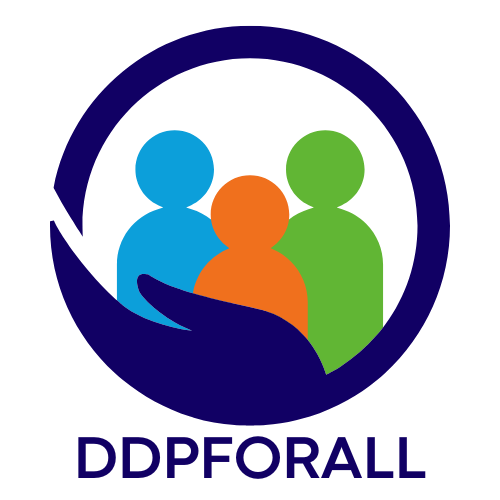Table of Contents
ToggleIn a world where emojis often replace words and TikTok trends steal the spotlight, the art of reading might seem like a lost cause. But fear not! Pursuing a master’s degree in reading and literacy isn’t just a path to becoming the ultimate bookworm; it’s a gateway to transforming lives through the power of words. Imagine wielding the magic to unlock a child’s potential or helping adults conquer their reading challenges.
Overview of Masters Degree in Reading and Literacy
A master’s degree in reading and literacy equips professionals with essential skills to enhance literacy development. This program focuses on strategies to improve reading comprehension, fluency, and motivation in various populations.
Courses typically cover topics such as literacy theory, assessment methods, and instructional techniques. Educators develop competencies needed to support diverse learners, including English language learners and students with disabilities.
Program formats vary, offering options like online, hybrid, or on-campus classes. Most master’s degree programs require 30 to 36 credit hours for completion, often taking one to two years.
Field experiences and practicums provide hands-on learning opportunities. These experiences empower students to apply theoretical knowledge in real classroom settings. Collaboration with peers and faculty fosters a community of practice focused on literacy improvement.
Graduates possess qualifications for roles in schools, libraries, or literacy organizations. Career options range from literacy coaches to program directors, emphasizing the master’s degree’s versatility.
Certification may accompany degree completion, enabling educators to meet state licensure requirements. Many programs align with national standards for reading and literacy, ensuring relevance in the field.
Pursuing this degree cultivates leaders in reading and literacy, crucial for addressing the evolving needs of learners today. Enhanced literacy skills promote lifelong learning, ultimately impacting communities positively.
Benefits of Pursuing a Masters Degree in Reading and Literacy

Pursuing a master’s degree in reading and literacy offers numerous advantages. This degree not only enhances understanding but also prepares professionals to meet diverse educational needs.
Career Advancement Opportunities
Career advancement opportunities arise for graduates of reading and literacy programs. Positions such as literacy coaches, program directors, and reading specialists become accessible. This degree equips individuals with the skills to lead literacy initiatives in schools and organizations. Employers value advanced literacy knowledge, often resulting in enhanced job prospects and higher salaries. Increased responsibility also accompanies these roles, allowing professionals to drive change in students’ reading abilities. Additionally, possessing a master’s degree strengthens resumes, distinguishing candidates in the competitive education job market.
Enhanced Teaching Strategies
Enhanced teaching strategies develop through a master’s degree in reading and literacy. Graduates learn effective approaches to improve reading comprehension and fluency. This education fosters innovative methods that encourage engagement and motivation among learners. Professionals gain insights into diverse reader needs, enabling targeted support for English language learners and struggling students. Real-world experience from practicums ensures that theoretical knowledge translates into practical application. Courses emphasize assessment techniques, equipping educators to identify challenges effectively. As a result, students benefit from tailored instruction that promotes literacy growth in various learning environments.
Core Curriculum Components
Core curriculum components of a master’s degree in reading and literacy focus on advancing knowledge and skills in literacy. Structured coursework emphasizes essential theories, assessments, and instructional strategies.
Key Courses Offered
Key courses in this program often include Literacy Foundations, Reading Assessment, and Instructional Strategies. Literacy Foundations covers critical theories and frameworks supporting literacy development. Reading Assessment teaches techniques to evaluate student reading abilities effectively. Instructional Strategies focuses on applying diverse teaching methods that cater to various learning needs. Additional courses such as Language Development and Children’s Literature may also be part of the curriculum, providing comprehensive training for future literacy leaders.
Skills Developed Through the Program
Skills developed through the program include critical thinking, analytical abilities, and instructional design. Students learn to implement evidence-based practices that enhance reading outcomes. Additionally, they cultivate assessment strategies to identify and support diverse learners. Collaboration skills are strengthened through field experiences, allowing students to engage with peers in real-world settings. Communication skills also receive emphasis, as literacy professionals must convey complex concepts clearly to various audiences. Overall, these competencies prepare graduates to foster literacy growth effectively across different educational contexts.
Admissions Requirements
The admissions requirements for a master’s degree in reading and literacy include a few critical components. Applicants must possess a bachelor’s degree from an accredited institution.
Prerequisites for Enrollment
Enrollment emphasizes specific prerequisites to ensure readiness. Candidates typically need a minimum GPA of 3.0 in their undergraduate coursework. Relevant professional experience in education can strengthen applications, particularly roles involving reading instruction or support. Some programs may require a background in literacy or education-related fields. Additionally, prospective students often submit letters of recommendation from professionals familiar with their teaching abilities.
Application Process
The application process generally involves several key steps. Applicants start by completing an online application form specific to the institution. Submission of transcripts showcasing previous academic work is essential. Many programs ask for a personal statement detailing goals and motivations related to reading and literacy. Standardized test scores, such as the GRE, may also be mandatory, depending on the institution’s requirements. Once submitted, applications undergo review by the admissions committee, which assesses candidates based on their qualifications and fit for the program.
Career Outcomes
A master’s degree in reading and literacy leads to various rewarding career paths. Graduates often find roles in educational institutions, literacy organizations, and libraries, enhancing literacy among diverse populations.
Job Opportunities in the Field
Literacy coaches support teachers by improving reading instruction. Program directors oversee literacy initiatives, developing strategies tailored to community needs. Reading specialists work directly with struggling readers, implementing targeted interventions. Librarians with a focus on literacy curate resources and programs that promote reading engagement. Additionally, positions in research and policy development center on effective literacy practices.
Potential Salary Expectations
Salary varies based on role and experience, with many earning competitive wages. Literacy coaches typically earn between $45,000 and $70,000 annually. Program directors often top salaries at $75,000 or more, reflecting their leadership roles. Reading specialists usually see salaries around $50,000 to $65,000. Overall, advanced degrees in education and specialized training can lead to higher salaries and expanded career opportunities.
A master’s degree in reading and literacy opens doors to transformative opportunities in education. It empowers professionals to make a lasting impact on learners’ lives by enhancing their reading skills. This degree not only equips graduates with essential knowledge and practical experience but also prepares them to tackle the challenges of diverse educational settings.
By fostering a deep understanding of literacy development and effective instructional strategies, graduates become leaders in their fields. They’re poised to drive meaningful change in schools, libraries, and literacy organizations. With the growing emphasis on literacy in today’s world, pursuing this degree is a strategic step toward a fulfilling career dedicated to nurturing lifelong readers.







